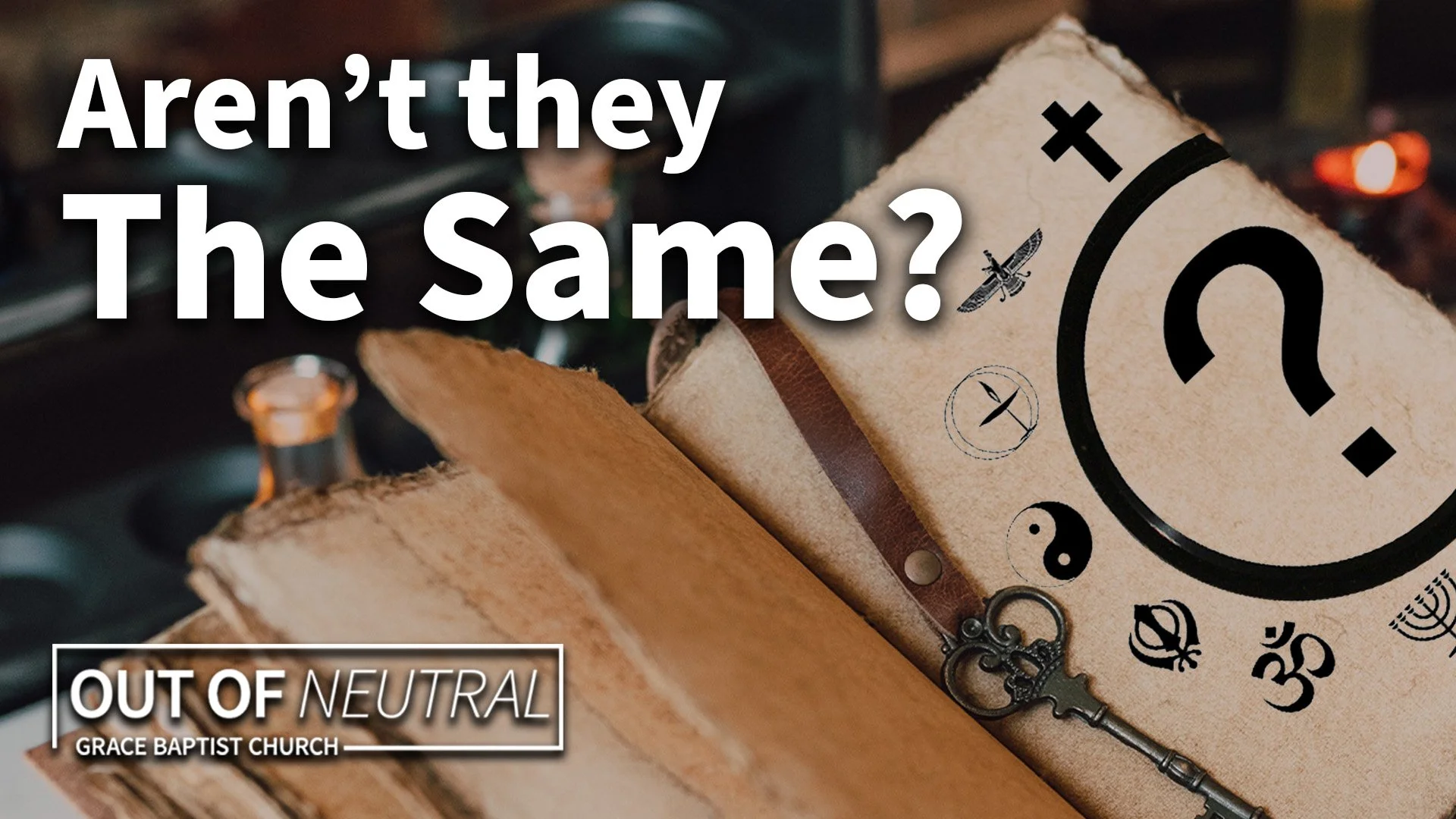Watch
Listen
Read
Have you ever heard people arguing about whether “Die Hard” is a Christmas movie or not? Both sides dig in with their positions and disagree passionately, even though they usually agree that it’s a great movie. The debate never seems productive. We wish they’d just stop. I think it’s tempting to see various religions that way. They all seem to agree on things like kindness, honesty, and self-control. Do the other things really matter?
There are 3 ways that people like to express the idea that all religions are basically the same. Let’s consider them together.
Are all religions just different paths up the same mountain?
The idea that religions are just taking different paths up the same mountain sounds attractive. It allows for individuality and diversity but in a common pursuit. It assumes, though, that any path will do. It’s based on the assumption that the actual beliefs aren’t all that important. But what we believe often does matter.
If you’re a commercial airline pilot, it matters whether you believe that the earth is flat or round. What you believe matters in the medical field as well. While there have always been a lot of well-intentioned doctors trying to help sick people, what people believe about germs has made a profound difference in disease prevention and treatment.
The Bible says that what we believe determines our eternity. Jesus paid the ultimate price to provide a way that we could be forgiven and accepted by a holy God. And according to Jesus, there aren’t any other ways. He famously said, “I am the way, and the truth, and the life. No one comes to the Father except through me” (John 14:6).
Are all religions just using different names for the same God?
It’s common to hear people say that religions just use different names for the same God. It assumes that the specifics don’t matter, and that people are all basically saying the same thing. Unfortunately, it’s only possible to believe this if you’ve never actually studied different religions. When you do, you realize they aren’t superficially different and essentially the same. Religions are essentially different and only superficially similar. Religions differ on God, morality, truth, life after death, and the nature of salvation. The different names used for God are just the start. But where God is concerned, even the names matter. Acts 4:12 teaches that “there is salvation in no one else, for there is no other name under heaven given among men by which we must be saved.”
Are all religions like blind people looking at different parts of the same elephant?
Another way of expressing the idea that all religions are basically the same comes from the parable of the blind men and the elephant. It basically says that different religions are like blind men each describing a different part of the same elephant. This sounds attractive because it offers an explanation for the differences between religions.
The main problem with the parable of the blind men and the elephant is that it assumes all religions are just made up by blind people with limited knowledge, but somehow the people who believe in the parable are smarter than everyone else and can see the entire elephant. Do you really have the confidence to say that the followers of every religion are blind and only you can see? And if so, on what basis?
What the Bible teaches is that religion would be fumbling around in the dark if the elephant hadn’t spoken. Christianity teaches that God has made Himself known to us. John 1:18 says, for instance, “No one has ever seen God; the only God, who is at the Father's side, he has made him known.” Since God has revealed who He is, refusing to believe is a rejection of Him.
What the Bible teaches that no other religion does
The Bible teaches that our fundamental problem is the separation from God that resulted from our sin. While most religions teach what we should do to try to get to God or achieve His acceptance, only Christianity teaches that eternal life is a free gift that we receive through faith in Jesus. We don’t change to earn a reward. We receive a gift that changes us.
If this is new to you and you think it’s something you’d like to explore, I’ve written a free, 12-week course called The Unstuck Life that walks you through the essentials of Jesus’ teachings in daily, bite-sized messages that you can read or watch by video. To learn more, go to gracebc.ca/getunstuck.
In awe of Him,
Paul














